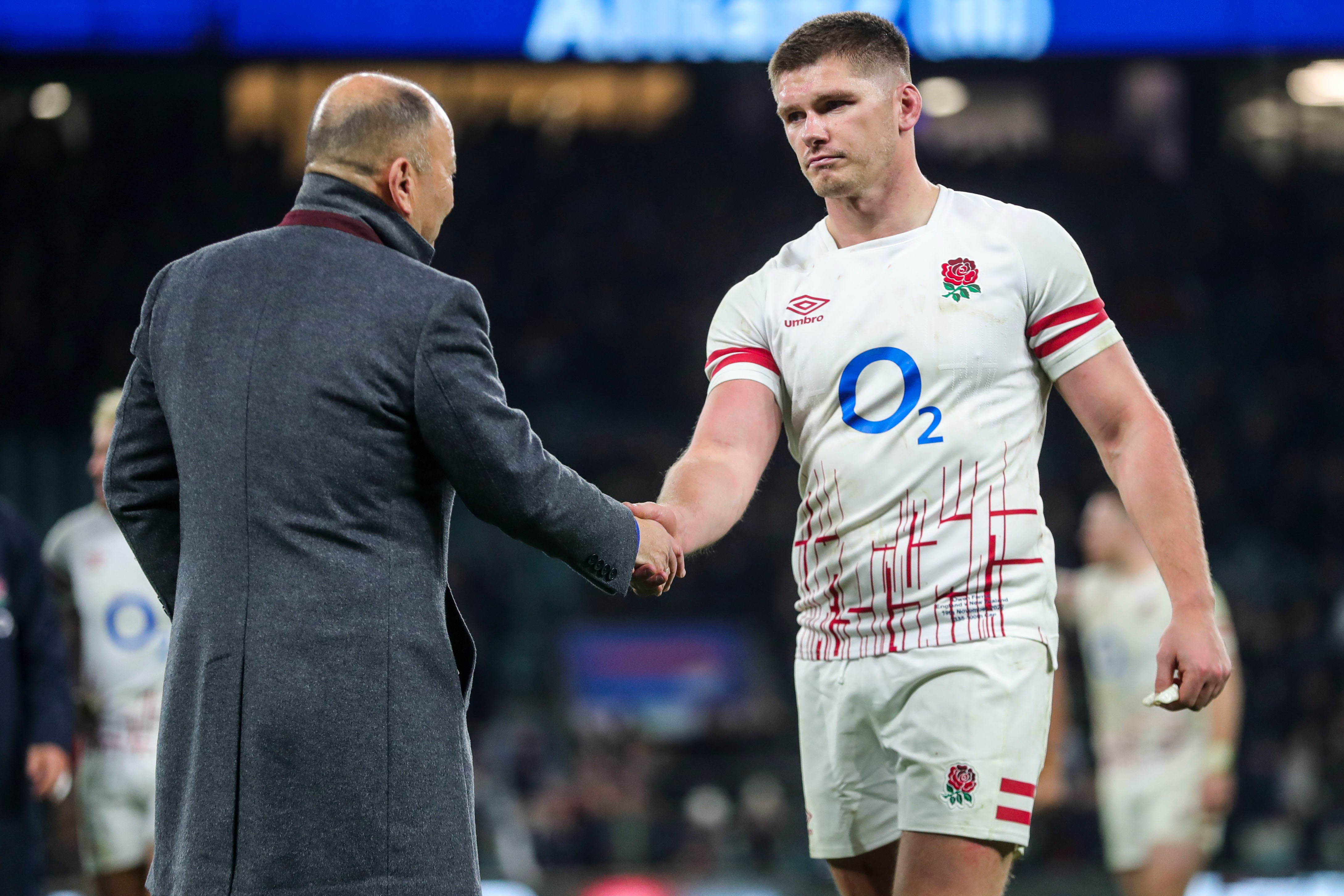England’s rousing finale to stun All Blacks showed a glimpse of what they can become
England’s late revival at Twickenham gave Eddie Jones something build upon after being ground down into submission for much of the first 70 minutes by New Zealand

Your support helps us to tell the story
From reproductive rights to climate change to Big Tech, The Independent is on the ground when the story is developing. Whether it's investigating the financials of Elon Musk's pro-Trump PAC or producing our latest documentary, 'The A Word', which shines a light on the American women fighting for reproductive rights, we know how important it is to parse out the facts from the messaging.
At such a critical moment in US history, we need reporters on the ground. Your donation allows us to keep sending journalists to speak to both sides of the story.
The Independent is trusted by Americans across the entire political spectrum. And unlike many other quality news outlets, we choose not to lock Americans out of our reporting and analysis with paywalls. We believe quality journalism should be available to everyone, paid for by those who can afford it.
Your support makes all the difference.Ian Foster and Eddie Jones wore curious looks as they tried to make sense of it all. England and New Zealand had shared 50 points evenly, and neither head coach was quite sure how to react to a result that did not particularly suit either side.
“We will probably have two press conferences,” Foster began with a strained smile. “One for the first 70 minutes and another for the next 10.”
After Beauden Barrett dropped the ball on to his right toe and extended New Zealand’s lead to 19 points with a crisp drop goal, home hopes looked to have been snuffed out. England had been poor for 70 minutes, unable to fully halt the All Blacks’ might in the tight and torn open repeatedly when the visitors’ multifarious backline found spaces out wide. Their own opportunities came and went, with England flustered when they were able to break the defensive line.
But then came those final 10 minutes. Barrett’s sin-binning and a brush of the ball on a blade of in-goal grass set in motion the quite remarkable transformation; a sagging crowd suddenly lifted as their side stirred from their state of thanatosis with two-try tighthead Will Stuart an unlikely reviver. England had been, to borrow from Miracle Max, only mostly dead.
It spoke volumes about how the momentum had swung that when Marcus Smith kicked for the stands with the clock dead, content to take a draw, the crowd booed. Perhaps, in time, England will rue not having one more go at an ailing All Blacks defence, but few options presented themselves to Smith, and Mathieu Raynal had been a punitive breakdown arbiter throughout. And so it ended, with honours – inexplicably, perplexingly and unpleasingly – even.
“To be honest it kind of feels like an opportunity missed,” was Maro Itoje’s assessment, rueing not Smith’s decision but England’s failure to match New Zealand early on.
“Ben Youngs said sometimes you play the All Blacks and you get to the end of the game and you say ‘how did that happen? How did we allow that to happen?’. It felt like one of those games today.
“We just didn’t get out of the blocks how we wanted to, we left it until the second half where all the pressure was on us to finally be free and finally play this type of rugby that we want to play.”
How Jones’ side continue to bewilder. What matters more in the context of what is to come over the next 10 months – the stirring, scintillating final salvo to snatch a draw, or the bulk of the game in which England were out-played? Certainly the hosts deserve credit for the manner in which they forced the All Blacks to capitulate, even after being ground down into submission for much of the first 70 minutes, but England are still very much searching for the complete, convincing performance.
The purposeful final 10 minutes showed a glimpse of what this side might yet become. With Owen Farrell hobbled, Smith took full control, attacking the line in a manner that he has not seemed able to often enough in an England shirt. New Zealand may have been down to 14 men but it took significant skill and belief to exploit it.
“I like [Smith] when he’s really aggressive,” Jones said, commending his fly-half’s seizing of the moment. “The way we want to attack we want to play every play to break the line because I think that’s how rugby is going to be played in the future, rather than having set-up plays.
“A lot of our players are used to attacks where they set up play. I want him to be really aggressive and take the line on all the time.”
The Australian will now consider how to prompt more of that sort of aggression from his young fly-half for the closing game of England’s autumn against South Africa. After a difficult evening for Jack van Poortvliet, whether it is he or Ben Youngs who start at scrum-half they will have to be afforded more protection. The Springboks will fancy replicating New Zealand’s physical and set-piece supremacy, with Jones poised to return a specialist lineout jumper to his back row as England seek a more satisfying finale.


Join our commenting forum
Join thought-provoking conversations, follow other Independent readers and see their replies
Comments